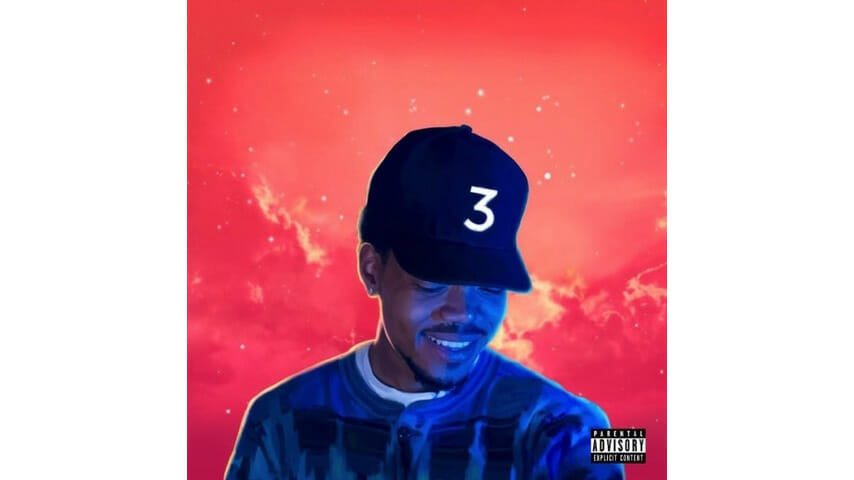Chance the Rapper: Coloring Book

Aaron McGruder’s absurdist show Black Jesus frequently failed as a comedy, but as an exploration of modern black Christianity, it was unparalleled. Tucked between the smoldering stoner jokes and stale stereotypes was an insistence that the relationship between black Christians and their god is best understood on a personal level, outside of church halls and inside the humdrum of everyday existence.
Coloring Book, Chance the Rapper’s third mixtape and his second project distributed via Apple, is deafeningly religious, brimming with testimonies, exaltations and blessings that are loud enough to rock a megachurch and its town-sized parking lot. Purged of the drug-addled skepticism of Acid Rap and pulsing with the free-wheeling spirit and zeal that bolstered Surf, Coloring Book is a breezy listen: direct and purposeful.
Forgoing a narrative of redemption, repentance or struggle, Chance spends the bulk of the album insisting that he’s already found salvation. “Man I swear my life is perfect,” he insists on the opener “All We Got.” “I just might give Satan a swirlie,” he boasts later on the same song, his demons so defeated that they’re mockable. At the end of Acid Rap, there was a strong sense of ambivalence as Chance repeatedly chanted “everything’s good,” but here there is nothing but triumph. “Exalt, exalt glorify,” he proclaims on “How Great,” the most straightforward lyrics in his entire catalog.
-

-

-

-

-

-

-

-

-

-

-

-

-

-

-

-

-

-

-

-

-

-

-

-

-

-

-

-

-

-

-

-

-

-

-

-

-

-

-

-








































